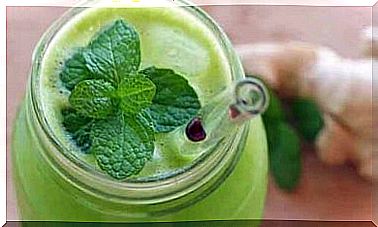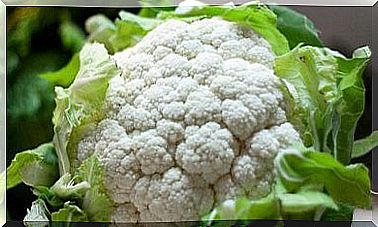How Do I Choose A Healthy Yogurt?
Yogurt is a high quality food that should not be missing in a healthy diet. However, it is important to make the right choice so that this dairy product is actually healthy.

In the grocery store, you are often spoiled for choice as there are countless types and brands of yogurt, all of which are sold as healthy. Many of these products are fortified, while others contain no other ingredients or special bacterial cultures. So today we are answering the question about the best criteria for choosing a healthy yogurt .
Even if you take a close look at all the ingredients, the label does not always tell you exactly what it is. So we come to the point: What should you watch out for when buying a healthy yogurt?
How do you choose a healthy yogurt?
The healthiest choice is quite simply a natural, unsweetened yogurt. It is best not to look at products that are marked with the words “with…” or “without…”.
The only ingredients in a good yogurt are milk and lactic ferments. Any yogurt that contains additional ingredients should therefore not be considered.
Nutrients and Benefits of Natural Yogurt

Choosing healthy yogurt can greatly benefit your health. Yogurt provides important nutrients and should therefore not be missing in a healthy, balanced diet.
While the nutritional value may vary depending on whether the product is made with cow, sheep or goat milk, in general it provides the following nutrients:
- biologically high quality proteins
- saturated fats
- Calcium and phosphorus
- Vitamins A and D
Not only is this dairy product highly nutritious, it also provides you with essential probiotics. Yogurt contains significant amounts of beneficial bacteria, especially Lactobacillus bulgaricus and Streptococcus thermophilus, which have very positive effects on intestinal health and also on general health.
Even if yoghurt tastes slightly sour, it is very easy to digest and usually also tolerable for people who suffer from lactose intolerance. Yoghurt is easier to digest than milk because the lactose has already been broken down by the healthy bacteria.
In addition, it should be emphasized that the proteins and fatty acids contained in it have a filling effect and can therefore also be beneficial in weight loss diets.
Which yogurt is not healthy?
To get all the benefits of yogurt, you should always choose a healthy product. Of course, this means that you should avoid other varieties. The most unhealthy are yogurt products with a lot of sugar, skimmed yogurt and industrially produced desserts with milk that no longer have much to do with yogurt.
1. Yogurt with sugar
One particular thing to consider here is the amount of sugar that is added to these products. This group includes all types of yogurt that contain sugar or other sweeteners:
- Fruit yoghurt: It usually contains very little or no fruit, but flavor enhancers, artificial flavors and a lot of sugar.
- Yoghurt with cereals, muesli or “super foods” such as goji berries, chia seeds, etc. These varieties also contain very few of these actually healthy ingredients, but are made palatable by sugar and other additives.
- Drinking yoghurt and functional yoghurt: These types contain other ingredients that are particularly intended to promote health. We are talking about probiotics, calcium, plant sterols and others. If you eat a healthy and balanced diet, none of these additives are necessary. Often there are also many other ingredients (flavors, colors and other substances) that do not make any contribution to health.
- Baby or children’s yogurt : Babies can start eating a few spoons of yogurt from around the age of nine months. However, you should avoid special products, because these are usually less healthy than normal, classic natural yoghurt without any other additives.
2. Low fat yogurt

Contrary to what many think, skimmed yogurts are usually not ideal on a diet. While they’re less fat, they can contain starches, sweeteners, and other ingredients that you can easily avoid.
Also, one of the problems is that 0% yogurts lose their creamy texture and also their pleasant taste. This is also the case if it contains neither fat nor sugar.
Manufacturers therefore use other ingredients to compensate for this: sweeteners, starches and other flavor and texture improvers. The result is an industrial product that does not have the quality that we would like for a long time. Because, as already mentioned: high-quality yogurt only needs milk and lactic ferments as ingredients.
There are also increasing numbers of scientific studies disproving the bad reputation of whole milk, saturated fat and their effects on weight, cholesterol, and cardiovascular problems. One of these studies shows:
While this study is not entirely conclusive, it opens the door to new research in this area.
3. Industrially manufactured desserts with milk
As industrially manufactured desserts with milk, we refer to, for example, purchased vanilla or chocolate pudding, chocolate mousse and the like. Most of them contain milk, but also a lot of sugar. Some up to 25 grams, which means that with a single serving we exceed the daily allowances recommended by the World Health Organization (WHO) for children.
Are there other options for healthy yogurt?

We have seen that most commercially available products are not recommended, so the selection for healthy yogurt is relatively small. But this only seems so at first glance, because there are various basic products for daily nutrition that you can enrich yourself at home:
- Greek plain yogurt
- Natural kefir
- Skyr (Icelandic yogurt, which is a little creamier, but tart, but provides a lot of protein)
- Other dairy products such as quark or cream cheese
You can refine these types of yoghurt at home with fresh, cut fruit, add raisins, dried apricots, dates, desiccated coconut, vanilla, nuts, seeds or dark chocolate. You can also use oats to prepare great creations for your breakfast or afternoon snack. The possibilities are almost endless. Get creative and conjure up variety on the table every day!









